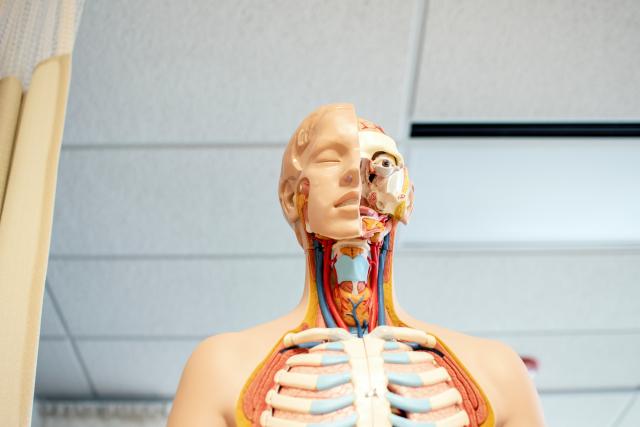About This Lesson
Introduction to B12
The modern fast-food diet has led to many vitamin and mineral deficiencies. Cobalamin, more commonly called Vitamin B12, isn’t at the top of that list. However, 20 percent of the population are consuming levels of this vitamin that are borderline deficient. Care must be taken because the entire human body is dependant upon its intake, and its lack has the potential to cause permanent damage Thankfully, the sources are easily accessible for most of the population, so the issue is generally easy to correct. A lot of common foods such as meat, fish, milk, and eggs are all abundant sources of B12.
Vegetarian Sources of B12
It can be a bit more difficult for vegetarians since most sources are animal-based. However, there are some modern alternatives. Look for foods labeled fortified or enriched. Typically, they will contain an added source of B12. Vegetarians should also look to sea-plants such as kelp and seaweed as they are the most natural of the vegan sources of B12. You can now find plant based meal delivery services that have proportionally balanced nutrient content to take the guesswork out of eating. My personal go-to source is fortified nutritional yeast. It is a cheap and ready source of many vitamins, minerals, and amino acids. Finally, there are vegan-approved supplements and injections that can serve as fantastic sources of B12.
If you choose to buy nutritional yeast, make sure to purchase the fortified version. This is actually a fantastic source of many of the B vitamins, but B12 isn’t one of them. Typically, I recommend unfortified, but the vegetarian diet requires that extra boost of B12.
What Is the Correct Daily Dose?
This isn’t an easy answer since gender, age, and the varied ability to absorb Vitamin B12(1). According to the National Institute of Health(2):
-
Children under 3 - Less than 1 mcg
-
Children 9 to 13 Years - 1.8 mcg
-
14 and older - 2.4 mcg
What Does Vitamin B12 Do?
ATP Production (Energy Production)
You may or may not know that your Krebs cycle requires each of the B vitamins for the production of Adenosine triphosphate (ATP). ATP is commonly called molecular currency, and it is the molecular energy that powers your body. For this reason, B12 is often touted for boosting energy. Current research suggests that it will not boost energy for those already consuming sufficient amounts of it. However, the 40 percent of people that are deficient will have a relative increase of energy as their energy production normalizes from the stance of a deficiency.
Neuronal Communication (Fast and Clear Thinking, Preservation of Neurological Systems)
Vitamin B12 is a necessary component in the construction of the myelin sheath. While the brain is still a mystery, there are some functions that we are beginning to understand. Recently, neurons have received some attention due to a strong connection between the derangement of the myelin sheath and Alzheimer’s(3)(4). To explain why, when neurons are activated, they send electrical impulses through their tendril-like extensions called axons. The charge of the transmission is focused through the myelin sheath that wraps around the axon. This is much like a modern electrical wire that is wrapped in rubber. Unfortunately, the potential neurological disruption extends outside of the brain and into the entire peripheral nervous system. Symptoms of unhealthy myelin sheaths include confusion, slower thinking, movement disorders, and paresthesias of the hands and feet.
DNA Synthesis
In order to live, our DNA must replicate. This repeating process of transcription requires a list of enzymes and cofactors that activate those enzymes. The B9 and B12 vitamins are a couple of those required cofactors. DNA replication requires B12 for the binding and delivery of molecular structures within the methyl group. When there isn’t enough of this vitamin, cell defects may occur. In a worst-case scenario, this can lead to cancer.
Red Blood Cell Production
B12 is also required for red blood cell production(5). When there isn’t enough of this vitamin, it can cause megaloblastic anemia(6). This type of anemia produces large and deformed blood cells that haven’t matured properly. It can be very disruptive to the day-to-day experience due to the inadequate oxygen carrying capacity of the red blood cells. Feeling weak, nauseous, dizzy, diarrhea, being out of breath, pain, and jaundice are all potential symptoms.
Conclusion
Don’t ignore a vitamin B12 deficiency. Be aware of the symptoms, so that you can take the necessary actions to maintain your health. If you feel that you might be deficient, head over to your family doctor for a B vitamin test or purchase a kit to test from the comfort of your home. It's worth your time. Good day and good health.












